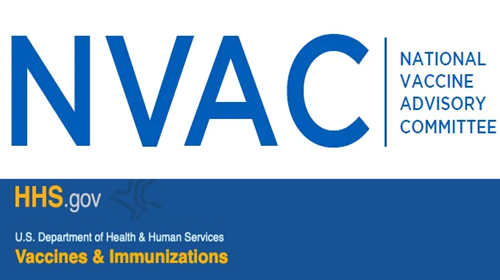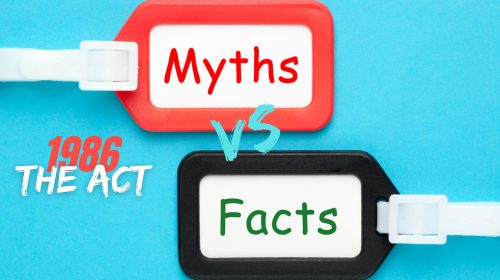
On August 25, the National Vaccine Advisory Committee (NVAC), a public oversight committee created by Congress under the National Childhood Vaccine Injury Act of 1986, whose members are appointed by the National Vaccine Program Office (NVPO) under the US Department of Health & Human Services, held a public teleconference and discussed how best to monitor the safety of the 2010/2011 influenza vaccine, as well as target groups identified for the vaccine. NVPO staff and advisors strongly promoted the vaccination of pregnant women and supporting the American Medical Association (AMA) and American Academy of Pediatrics (AAP) recommendation that healthcare workers should receive influenza vaccines.
NVIC’s Executive Director, Theresa Wrangham made public comments encouraging the NVAC to step-up the safety monitoring of this year’s vaccine to match the monitoring efforts during 2009/2010 pandemic H1N1 season. During the meeting, the committee voted to accept interim recommendations to pursue safety monitoring of this season’s trivalent influenza vaccine as an inter-agency effort only. It did not recommend convening an independent and external committee to review vaccine safety data as was done to monitor the 2009/2010 monovalent pandemic H1N1 vaccine through the specially appointed Vaccine Safety Risk Assessment Working Group (VSRAWG). Unfortunately, at this time, NVAC has no plans to extend the life of the VSRAWG or to create another independent, external working group to rapidly review safety and monitoring data of the 2010/2011 trivalent influenza vaccine that contains the 2009/2010 monovalent pandemic H1N1 strain.
NVIC maintains that additional safety and monitoring is warranted due to inclusion of the 2009/2010 pandemic H1N1 STRAIN in this season’s trivalent formulation for two key reasons.
First, the VSRAWG has issued several periodic reports noting the presence of three potential safety signals for the 2009/2010 pandemic H1N1 monovalent vaccine. The VSRAWG’s final report evaluating the signals will not be finalized and released to the public until October, or November. The three potential signals for serious adverse events associated with the 2009 pandemic H1N1 monovalent vaccine being evaluated by the VSRAWG include Guillain-Barre Syndrome (GBS), Bell’s palsy, and idiopathic thrombocytopenic purpura (ITP). NVIC’s director of research and patient safety, Vicky Debold, PhD, RN, is a member of the VSRAWG.
Second, the 2010/2011 trivalent influenza vaccine formulation that will be used in the United States this season is the same formulation that was used in Australia earlier this year and was reported to cause an increase in convulsions in young children when it was given to Australian children. Recently, Finland has suspended use of the monovalent pandemic H1N1 vaccine in children due to reports of narcolepsy in some Finnish children given pandemic H1N1 shots. NVIC is also concerned that, once again, pregnant women are a target group for this year’s influenza vaccine even though influenza vaccine remains a Category C drug, which means that these vaccines have not been fully studied in pregnant women.
These facts support the need for additional, continued safety monitoring or this year’s flu vaccine and the process should include oversight by a group that is external and independent of the federal government group similar to the VSRAWG.
During public comment period, NVIC also requested that the committee encourage the Centers for Disease Control (CDC) to fully respond to the NVAC’s 2009 recommendations on the Immunization Safety Office’s (ISO) draft vaccine safety research agenda, which identified significant vaccine safety research gaps. To date, CDC has only partially responded to the NVAC’s recommendations and a written response is expected but no date has been given by the CDC for when the written response will be issued. NVAC’s recommendation for increased efforts to engage the public has yet to be addressed by the CDC.
NVIC also encouraged NVAC to announce the public engagement schedule for NVAC’s Charge 2 efforts. Charge 2 requires the NVAC to issue a white paper reviewing the effectiveness and operation of the entire federal vaccine safety system, including improvement options, such as more independent monitoring and assessment of vaccine risks (an option NVIC strongly supports). NVIC also strongly supports broad public engagement and participation with a timelier announcement by the NVAC of the meeting schedule to allow the public adequate notice and ample time and opportunity to participate.
Recent federal public engagement efforts, which have been facilitated by The Keystone Group, have enhanced H1N1 pandemic vaccine benefit/risk communication and have assisted the CDC in developing an effective vaccine safety research agenda. NVIC maintains that a robust public engagement effort is necessary for the important Charge 2 project as well having broad implications for improving the government’s vaccine safety monitoring, evaluation and education programs.
NVIC will publish public engagement meeting date once they are announced by the federal agencies and strongly encourages citizens to participate in federal public engagement opportunities. The NVAC was created under the National Childhood Vaccine Injury Act of 1986. Among the responsibilities Congress tasked the committee with is optimizing vaccine safety. As a federal advisory committee, citizens may contact the NVAC directly to ask questions or express concerns about NVAC or other federal health agency activities and programs.
We hope that you will support the need for increased vaccine safety monitoring and evaluation of the 2010/2011 influenza vaccine and need for broad public engagement opportunities, as the NVAC works to complete is white paper on the nation’s vaccine safety system. To contact the NVAC directly, e-mail [email protected], or call 202-690-5566. If you send a copy of any comments you make to NVAC to us, we will add your correspondence to NVIC’s federal agency communication archives.




.png?width=991&height=280&ext=.png)



Leave a comment
Your email address will not be published. Required fields are marked with an *